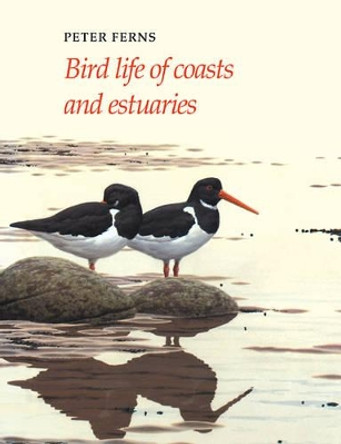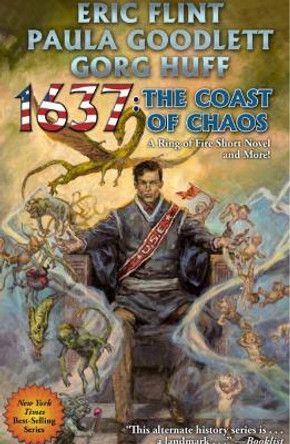Description
About the Author
Professor Eric Wolanski is an estuarine oceanographer at James Cook University and the Australian Institute of Marine Science. His research interests range from the oceanography of coral reefs, mangroves, and muddy estuaries, to the interaction between physical and biological processes determining ecosystem health in tropical waters. He has published 396 publications and reports. Eric is a fellow of the Australian Academy of Technological Sciences and Engineering, the Institution of Engineers Australia (ret.), and l'Academie Royale des Sciences d'Outre-Mer. He was awarded an Australian Centenary medal, a Doctorate Honoris Causa by the Catholic University of Louvain, a second Doctorate Honoris Causa by the University Hull, and a Lifetime Achievement Award by the Estuarine & Coastal Sciences Association. Eric is a member of the Scientific and Policy Committee of the Japan-based International Center for Environmental Management of Enclosed Coastal Seas. Professor John Day is an Emeritus Professor at the Department of Oceanography & Coastal Sciences, Louisiana State University. His research interests include Estuarine Ecology, Systems Ecology, Wetland Ecology, Ecological Modeling, Effects of Humans on Natural Systems, Tropical Coastal Ecology. Professor Day has edited numerous books on aquatic ecology and has contributed to numerous journal articles and special issues. Professor Michael Elliott is the Director of the Institute of Estuarine & Coastal Studies (IECS) and Professor of Estuarine and Coastal Sciences at the University of Hull, U.K. He is a marine biologist with wide experience in teaching, research, advisory and consultancy work in estuarine and marine aspects of ecological components and communities, and the impacts of human activities, as well as policy, governance, and management of estuaries and coasts. He is a Fellow of the Royal Geographical Society and of the Society of Biology. Mike has published widely, coauthoring/coediting 15 books and contributing to over 200 scientific publications. Mike has acted as an advisor on many marine and estuarine environmental matters for academia, industry, government, and statutory bodies in Europe and elsewhere. Mike is a past-president of the international Estuarine & Coastal Sciences Association (ECSA) and is also one of the four editors-in-chief of the international journal Estuarine, Coastal & Shelf Science and is on the editorial board of Marine Pollution Bulletin. He is the Sir Walter Murdoch Distinguished Adjunct Professor, Murdoch University, Australia, and also has adjunct professor and research positions at Klaipeda University (Lithuania), the University of Palermo (Italy), and the South African Institute for Aquatic Biodiversity, Grahamstown. In 2014, he was appointed an independent non-executive member of the UK Marine Science Coordinating Committee and member of the Science Advisory Board of Marine Scotland. In 2014, Mike was awarded the Laureate of the Honorary Winberg Medal of the Russian Hydrobiological Academic Society. Ramachandran Ramesh's expertise includes coastal biogeochemistry and Integrated Coastal Zone Management. He received his MPhil and PhD in Environmental Sciences from Jawaharlal Nehru University, New Delhi and a second PhD in Marine Sciences from the McGill University, Canada. As Former Chair of Future Coasts (formerly Land Ocean Interactions in the Coastal Zone; LOICZ) from 2011 to 2015, he implemented the LOICZ Nutrient Budget for major estuaries on the east and west coast of India among several other studies globally. Another significant contribution is the development of an Ecosystem Health Report Card for Chilika Lagoon, Odisha and the Marine National Park, Jamnagar, Gujarat, India. Currently, many such ecosystems in India (viz. Gulf of Mannar, Kavaratti Island, Lakshadweep) are underway. For the past decade, Ramesh Ramachandran has been involved in coupled land-ocean interface studies and their management to aid policy decisions of the Ministry of Environment, Forest & Climate Change. As the Founder and Director of the National Centre for Sustainable Coastal Management of the Ministry of Environment, Forest & Climate Change, several trans-disciplinary research studies spanning coastal vulnerability, socio-economic development, coastal/ marine conservation, spatial planning, land-based pollution, island management, integrated coastal zone management and climate change are being undertaken under his leadership.
Reviews
"Within each section the chapters deal with very different issues and have a different focus. For example, some authors address a specific system or issue, whereas others have taken a much broader approach, synthesizing information from a number of systems within a wider geographic region. Chapters vary in length, and therefore information contained within them varies greatly in detail. Some authors have included short, focused boxed essays, whereas others have not. For these reasons I believe that some chapters are of more value than others. Because the book mainly concentrates on soft sediment in resolution, with labelling that is difficult to read. There is also a randomness in the use of colour and puzzlingly, the size of maps and diagrams varies from full page to quite small. Bringing this 700+ page multi-author volume together will have been a mammoth task for the editors. Despite the quality of some of the images, maps, and diagrams, the book will be of value to those scientists and resource managers working on risk assessments and management of coastal systems. environments, I was surprised that there was very little information on the impact of armouring shorelines and erosion control. Whilst I found that useful tables and figures accompany the text of most chapters, the quality of the figures and illustrations is variable. Some diagrams are sharp and clear, whereas others are rather poor" --The Marine Biologist
Book Information
ISBN 9780128140031
Author Eric Wolanski
Format Paperback
Page Count 726
Imprint Elsevier Science Publishing Co Inc
Publisher Elsevier Science Publishing Co Inc
Weight(grams) 1950g







